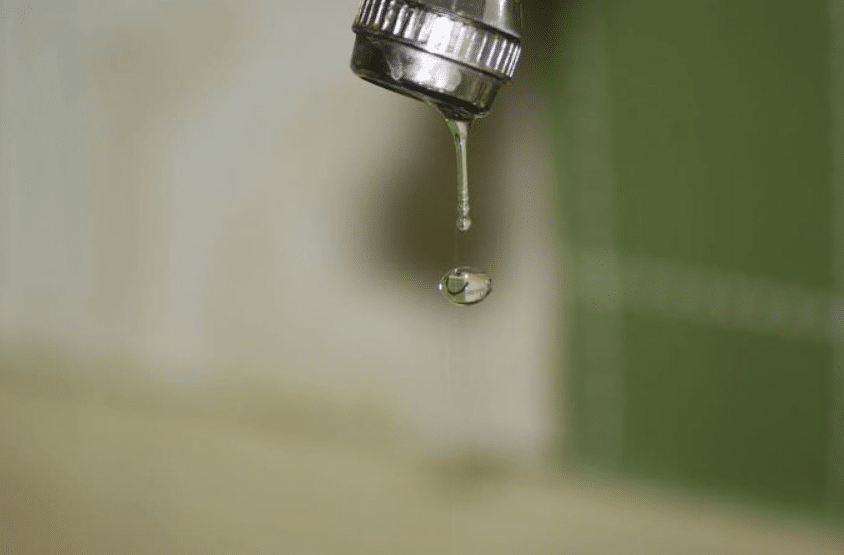The House's Most Typical Leak Triggers: Examination
The House's Most Typical Leak Triggers: Examination
Blog Article
Every person may have their own unique opinion on the subject of Common Water Leaks In House.

Leaks not only trigger waste of water yet can additionally create unnecessary damage to your house as well as promote unwanted organic development. However, water leaks might go unnoticed since a lot of the pipework in our home is hidden. By understanding and also looking for daily scenarios that trigger leaks, you can safeguard your residence from future leakages as well as unnecessary damages. Today, we will look at six leakage causes that may be causing your pipes to leak.
Elbowing in origins
Many water leaks begin outside the house instead than inside it. You may observe wet patches or sinkholes in your lawn, and also that might imply that tree origins are getting into water lines causing water to permeate out.
Rusty water systems
As time passes by, your plumbing system ages as well as deterioration such as corrosion might begin eating away the pipelines. This could be the reason for discoloration or bending on your pipes. This asks for an evaluation with your plumber quickly. If our plumbing system is old, think about replacing the pipelines given that they are at a higher risk of rust than the newer versions.
Defective Pipe Joints
Pipe joints can wear away over time, resulting in water leakages. If you have loud pipes that make ticking or banging noises, specifically when the hot water is turned on, your pipe joints are possibly under a whole lot of pressure.
Instantaneous temperature changes.
Severe temperature level modifications in our pipes can cause them to increase and contract suddenly. This growth and tightening may create cracks in the pipelines, particularly if the temperature level are below freezing. It would certainly be best if you kept an eye on how your plumbing functions. The existence of the previously stated scenarios regularly indicates a high danger.
Poor Water Connectors
At times, a leak can be caused by loosened pipes and pipelines that supply your appliances. Most of the time, shifting is what triggers the loosened water Links. You might find when it comes to a washing device, a hose pipe may spring a leak because of trembling during the spin cycle. In case of a water links leakage, you might discover water running directly from the supply line or puddles around your appliances.
Obstructed Drains
Clogged drains pipes may be aggravating as well as inconveniencing, but they can occasionally wind up causing an overflow resulting in burst pipes. Keep removing any products that may go down your drains that could clog them to avoid such troubles.
All the above are causes of leaks however not all water leaks arise from plumbing leakages; some leaks could originate from roof covering leaks. All leaks should be fixed promptly to stay clear of water damage.
Leaks not only create waste of water however can also trigger unnecessary damages to your home and also promote unwanted natural growth. By looking as well as recognizing for day-to-day circumstances that create leakages, you can safeguard your residence from future leakages and also unneeded damage. Today, we will certainly look at 6 leakage triggers that may be triggering your pipelines to trickle.
At times, a leakage can be caused by loose hoses as well as pipes that provide your devices. In case of a water links leakage, you might see water running straight from the supply line or pools around your home appliances.
How To Check For Water Leak In Your Home
How To Check for Leaks
The average household's leaks can account for nearly 10,000 gallons of water wasted every year and ten percent of homes have leaks that waste 90 gallons or more per day. Common types of leaks found in the home are worn toilet flappers, dripping faucets, and other leaking valves. These types of leaks are often easy to fix, requiring only a few tools and hardware that can pay for themselves in water savings. Fixing easily corrected household water leaks can save homeowners about 10 percent on their water bills.
To check for leaks in your home, you first need to determine whether you're wasting water and then identify the source of the leak. Here are some tips for finding leaks:
Take a look at your water usage during a colder month, such as January or February. If a family of four exceeds 12,000 gallons per month, there are serious leaks.
Check your water meter before and after a two-hour period when no water is being used. If the meter changes at all, you probably have a leak.
Identify toilet leaks by placing a drop of food coloring in the toilet tank. If any color shows up in the bowl after 10 minutes, you have a leak. (Be sure to flush immediately after the experiment to avoid staining the tank.)
Examine faucet gaskets and pipe fittings for any water on the outside of the pipe to check for surface leaks.
Undetected water leaks can happen without the home or business owner even realizing. If you suspect a water leak, but not able to find the source. It is time to contact a professional water leak detection service, The Leak Doctor.
How To Find a Water Leak In Your Home
https://www.leakdoctor.com/blog/How-To-Check-For-Water-Leak-In-Your-Home_AE197.html

As an enthusiastic reader on Common Water Leaks In House, I thought sharing that topic was essential. Are you aware of another individual who is curious about the niche? Be sure promote it. We love reading our article about How to detect water leaks in your home.
Reliable plumber? Dial! Report this page